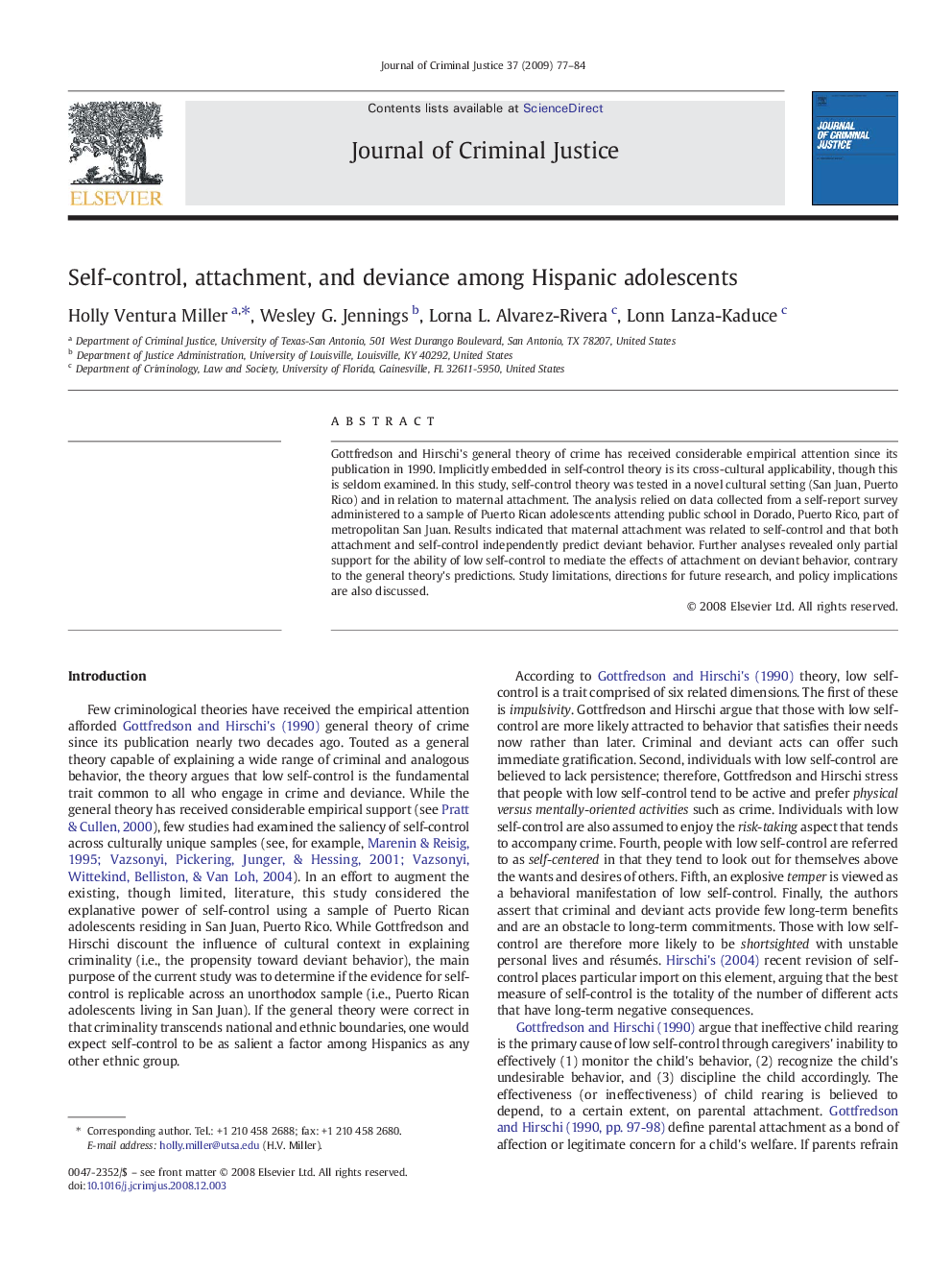| کد مقاله | کد نشریه | سال انتشار | مقاله انگلیسی | نسخه تمام متن |
|---|---|---|---|---|
| 883298 | 912064 | 2009 | 8 صفحه PDF | دانلود رایگان |

Gottfredson and Hirschi's general theory of crime has received considerable empirical attention since its publication in 1990. Implicitly embedded in self-control theory is its cross-cultural applicability, though this is seldom examined. In this study, self-control theory was tested in a novel cultural setting (San Juan, Puerto Rico) and in relation to maternal attachment. The analysis relied on data collected from a self-report survey administered to a sample of Puerto Rican adolescents attending public school in Dorado, Puerto Rico, part of metropolitan San Juan. Results indicated that maternal attachment was related to self-control and that both attachment and self-control independently predict deviant behavior. Further analyses revealed only partial support for the ability of low self-control to mediate the effects of attachment on deviant behavior, contrary to the general theory's predictions. Study limitations, directions for future research, and policy implications are also discussed.
Journal: Journal of Criminal Justice - Volume 37, Issue 1, January–February 2009, Pages 77–84